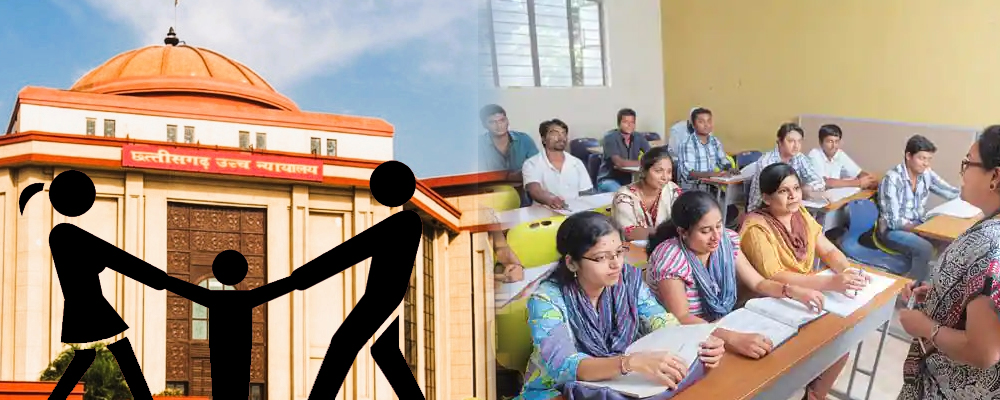In the case of Nimish S Agarwal v Smt Ruhi Agarwal, the father filed an appeal seeking custody of his child against the decision of the lower court, where he was denied visitation rights. The couple got married in the year 2007 and a child was born in 2012. Later, under Section 25 of the Guardian and Wards Act,1890, he filed an application seeking the child’s custody.
The custody of children is provided under Section 26 of the Hindu Marriage Act, 1955. The court observed that under this provision, interim orders can be passed by the court as it deems necessary concerning the custody, maintenance, and education of minor children.
The Court observed that ‘welfare of the child’ is of paramount consideration. The Court held that, “the court does not give emphasis on what the parties say, it has to exercise a jurisdiction which aims at the welfare of the minor.” The Court observed that, welfare of the child is what should be topmost concern while deciding a custody case. In the case of Githa Hariharan and Anr. v Reserve Bank of India & Anr. (1999), it was held by the Supreme Court that Section 6 of Hindu Minority and Guardianship Act, 1956 it provided that that mother shall be the guardian of the child after the lifetime of the father. It was held that in a dispute of guardianship, the use of the word ‘after’ in the provision won’t have any significance, as the minor’s best interest should be of paramount concern.
Need A Legal Advice
The internet is not a lawyer and neither are you. Talk to a real lawyer about your legal issue

It was also held that the term ‘after’ in the provision doesn’t necessarily mean ‘after lifetime’. Thus, the father being the natural guardian over the age of 5 years is not necessary, but the welfare of the child shall be of import.
Also, it was held in the case of Nil Ratan Kundu & Anr. v Abhijit Kundu (2008), that if the child is old enough to form a judgment, the Court must take into consideration his preference. However, the final decision of the court has to be made keeping in mind the welfare of the child.
While on the financial status, the Court noticed that the financial status of both parties are not similar, however, the Court observed that the value of money won’t bring a smile to a child’s face. It remarked, “a child may be comfortable in the company of someone who may have a lower financial status; it is always contrary to general expectations. It is not the measurement to be carried out while deciding the child’s custody.”
The argument of the appellant that he can provide the child with the best education in any school in India, was not accepted by the Court. It was observed that, “It is not a tug of war between wealth and personality traits. Placement of the child in the best boarding school cannot be a benchmark for the happiness of a child. A child may be happy in a regional, local school in the company of parents instead of living in isolation in the hostel.
The Court granted the custody rights of the 9 yr old to his mother, the Court was of the view that “it is a human problem and has to be solved with a human touch.”
Lead India provides a wide pool of advocates having expertise in the issues related to divorce, custody of children, domestic violence, maintenance, etc. Assistance in completing paperwork as well as legal advice is also provided.




 Talk to a Lawyer
Talk to a Lawyer